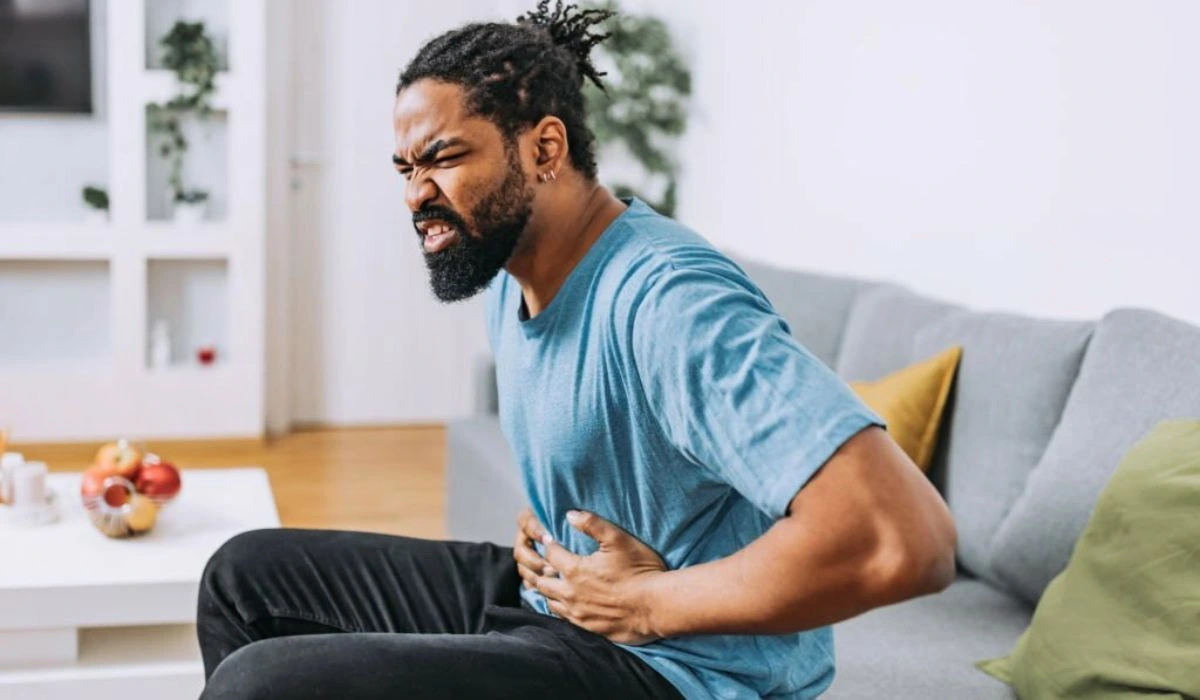Are you going through the unpleasant experience of bowel obstruction? It generally happens due to a blockage in your small or large intestine. Some common causes of bowel obstruction are twisting of the intestines, scar tissue from surgery, and tumors. Before getting into the self-care part of bowel obstruction, it is necessary to understand its symptoms and treatment.
Symptoms Of Bowel Obstruction

A bowel obstruction can be painful, and you may suffer from symptoms such as nausea and vomiting, bloating, diarrhea, cramping, constipation, reduced appetite, severe pain, inability to pass stools or gas, and abdominal swelling.
Also Check: Remedies For Burning Stomach: Find Ways For Natural Soothing
Treatment For Bowel Obstruction
In most cases of bowel obstruction, treatment is required. Though medication may work in mild cases, the National Centre for Biotechnology Information says that surgery is required in 20% of the cases. The danger of leaving it untreated is that it may eventually lead to an intestinal rupture.
Bowel Obstruction Self-Care
Now, you might be curious to know about how to take care of bowel obstruction on your own, just by staying back at home.
💠 Follow Your Doctor’s Instructions
As always, it is quite important to follow your doctor’s instructions. Also, make sure that you eat a liquid diet so that it does not end in a complete blockage. When it comes to medication, have medicines on time as prescribed. In case you are having any problems with your medicine, don’t hesitate to get in touch with your doctor.
💠 Use A Heating Pad
Sometimes you may suffer from mild cramps and pain. Put a heating pad low on your belly so that you will get relief.
💠 Post-Operative Care
In case you have undergone surgery, take a shower 24 to 48 hours post-surgery after consulting with your doctor. Also, pat the cut dry. Stay away from taking a bath for the first two weeks, or until the time your doctor permits. If there are strips of tape on the cut (incision), let the tape remain there until it falls off. Gently wash the area every day with warm, soapy water, rinse, and pat it dry.
You may have a low appetite after the surgery is over. Once you start feeling the appetite, start eating food in small quantities. Follow your doctor’s instructions regarding foods that you are not supposed to eat.
Tips To Get Rid Of Bowel Obstruction
When you suffer from constipation due to bowel blockage, the following tips work out best:
🔹 Have Psyllium Husk
Psyllium husk, a non-fermentable, soluble fiber, is the best solution for getting relief from constipation. It works in such a way that it absorbs water in your gut, facilitates bowel movements, and promotes regularity with no increase in gas.
🔹 Practice Yoga
Yoga boosts digestive system functionality and promotes the passage of stool or gas, thus offering major relief from constipation. There are various asanas, such as Malasana, Camel Pose, and Pawanmuktasana, that have proven to be quite effective for people with chronic constipation.
🔹 Alter Your Diet
Stay away from processed foods such as meat, milk, and cheese. Try to add yogurt to your menu and have lots of uncooked produce. Also, eat foods such as flax seeds and fiber-rich vegetables, and cut down on your consumption of chilies and carbohydrates. It naturally leads to regular, healthy bowel movements. Also, limit the intake of alcohol and coffee.
🔹 Have More Water
Always make sure that you stay hydrated. Drink water in sufficient quantities so that it will help you get rid of constipation. The reason is that when you are hydrated, your internal organs will become moist, which in turn leads to proper ejection of the stools. Also, when you are constipated, try drinking sugar-free carbonated water (sparkling water).
Read More: Is Peanut Butter Good For You? What Experts Say?
Conclusion
I hope you had a good read and got new tips on bowel obstruction self-care. Following the above techniques will help you curb bowel obstruction to a great extent. However, keep in mind that if you experience severe abdominal pain, it is quite essential to consult a doctor.
The reason is that there are serious risk factors associated with bowel obstruction, such as cancer, especially in the abdomen, Crohn’s disease, ulcerative colitis, etc. Also, among older people, obstructions can occur due to malignant tumors.